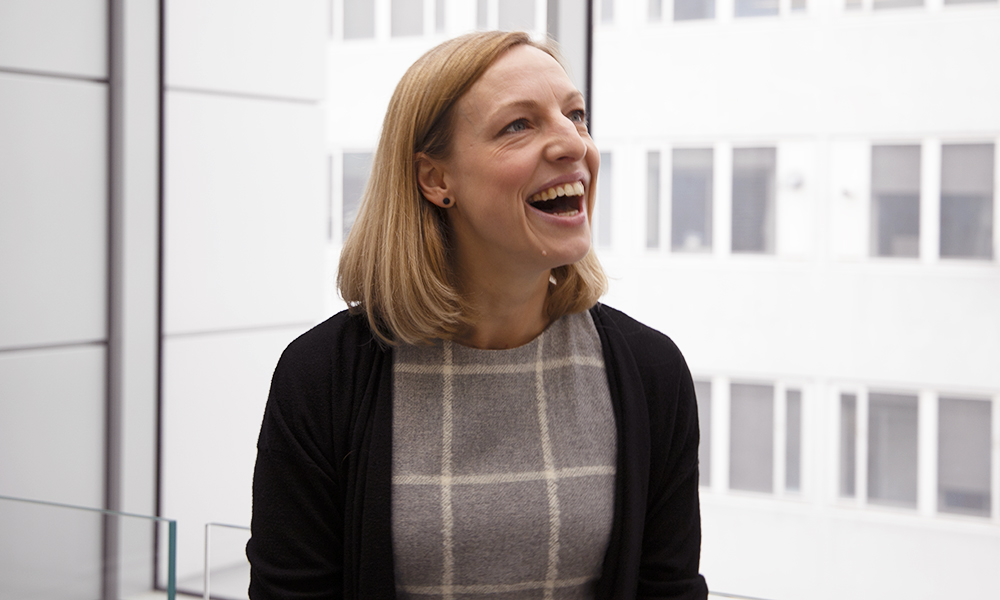
In the first edition of our Brain Sciences Staff Profile series, we spoke to Dr Johanna Jackson about working as a Scientific Project Manager for the UK Dementia Research Insitute at Imperial, and taking up the role of Athena SWAN lead for the Department.
Introduce yourself – who are you and what do you do?
I’m Jo Jackson, and I’m a senior scientist and Scientific Project Manager at the UK Dementia Research Institute at Imperial. I am leading a multi-‘omics atlas project, a new initiative dedicated to the comprehensive multi-‘omics mapping of the pathology of Alzheimer’s Disease in different brain regions across different stages of the disease. I am also the Athena SWAN lead for the Department of Brain Sciences and chair the Department’s People, Culture and Engagement committee which incorporates all aspects of EDI.
When did you join the College, and where were you working before this?
I joined in June this year and previously worked for a pharmaceutical company for 8 years, first as a post-doc and then as a group leader, researching synapse changes in Alzheimer’s Disease. Whilst there, I was an active member of the Women in Leadership in Drug Discovery group.
What’s the most interesting part of your role?
Whether it is my role in leading the atlas project or my role in leading Athena SWAN for the department, I need to be able to change roles quite quickly. One minute I am planning an IT strategy, the next negotiating the costs of a collaboration with an external partner and then on to mentoring early career researchers and students. Few things are routine which makes every day interesting!
What’s the most difficult aspect of what you do?
Everyone has their own research interests and commitments and bringing a group of busy people together either for the atlas project or for the Athena committee can be challenging.
As the Athena SWAN lead for Brain Sciences, what do you think are the key issues around equality, diversity and inclusivity (EDI) that need to be tackled in the Department?
Everyone needs to take responsibility for EDI. We have established an amazing, enthusiastic, very engaged committee but it is the people not on the committee that I want to target most. We need to create an environment within the Department where the best neuroscientists can come together and address the key challenges in neuroscience, but we only attract and retain the top talent if it is an environment where everyone feels comfortable and can perform at their best.
What are three things that we can all do as individuals to become better EDI advocates?
Be an ally, highlight diverse role models and remember that EDI is not a tick box exercise, it is about cultural change.
Where do you see yourself in five years’ time?
Hopefully leading my own group taking the findings from the atlas project into preclinical models for target validation, particularly around synapse changes in Alzheimer’s Disease.
What are your biggest hobbies/passions when you’re not busy at work?
It was travelling until we adopted our son almost two years ago and now most of my spare time is spent running around after him…oh and we’re also building a house extension so things are pretty busy at the moment!
If you were exiled to a desert island but allowed one luxury item, what would it be?
Anthology by Nina Simone, preferably on vinyl (and a record player)…the only album I can listen to over and over again.
And finally: what’s one thing you’d like staff in the Department to know about you or your role that we haven’t already covered?
I regularly tweet about science, women in science, parents in science and a few other ramblings… Follow me @jojacksonhere